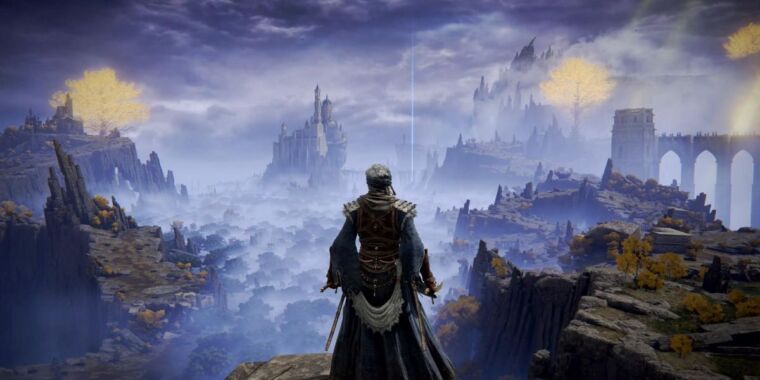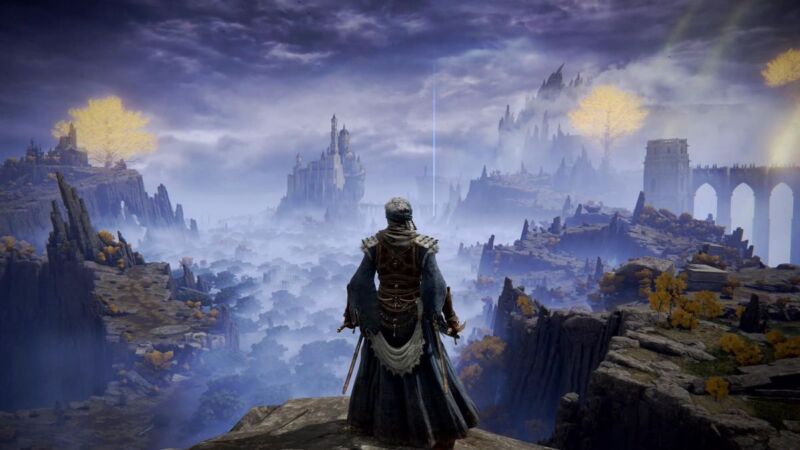
If you’ve even talked to someone who plays a lot of video games lately, you shouldn’t be surprised that Elden Ring—with its combination of open-world exploration and punishing Souls-like difficulty—is a huge hit. Still, we were taken aback when developer FromSoftware announced last night just how big of a hit the new IP has been already: 12 million worldwide sales as of March 14, just 17 days after the game launched.
That’s obviously a huge number, and FromSoftware is already promising to expand the new franchise “beyond the realm of games.” But just how big is 12 million sales for a game like Elden Ring? And what does it mean for a company that’s been slowly building up a dedicated audience for its Souls-like games for over a decade now?
We crunched the numbers to put those 12 million sales into context, as you can see in the graphs below. The comparisons make clear that Elden Ring is more than just a massive hit for FromSoftware. Elden Ring is already one of the most popular open-world games in recent memory.
(Note: All numbers in the graphs below come from official shipment data released or announced publicly by the publishers themselves. This means that info for some titles dries up suddenly when the publisher decides to stop sharing updates on further sales. Some dates are estimates based on when the numbers were first publicized and “more than X” phrasing).
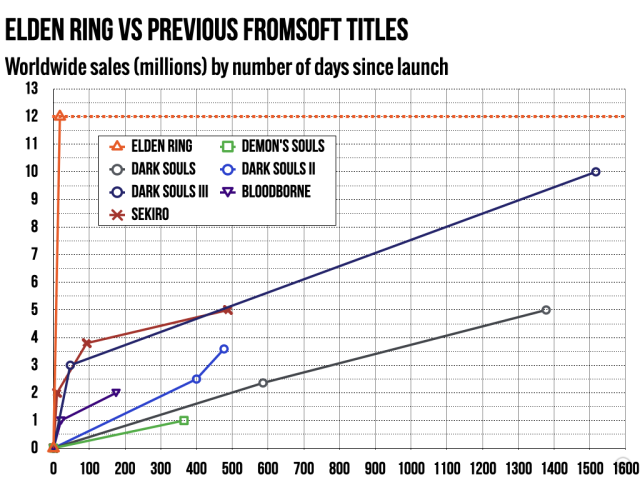
As far as FromSoftware’s recent catalog is concerned, Elden Ring is already in a class by itself. In just a few weeks, the new title has outsold each individual game in the Demon’s/Dark Souls series, as well as FromSoftware’s spiritual successors Bloodborne and Sekiro: Shadows Die Twice. (Bloodborne was only released on the PlayStation 4, limiting its potential reach).
Since the original Demon’s Souls in 2011—which sold a respectable but relatively paltry 1 million copies in its first year—FromSoftware has been steadily building a fanbase for its unique brand of action RPGs. Dark Souls III reached 3 million sales just a couple of months after its 2016 release before creeping to 10 million sales by 2020. Sekiro: Shadows Die Twice sold at a similar pace, hitting 5 million sales just over a year after its 2019 launch.
Still, Elden Ring has obviously taken the company to a new tier of sales. At this rate, the single game will quickly outpace the 27 million cumulative sales that the Dark Souls franchise took nearly a decade to amass (as of May 2020).
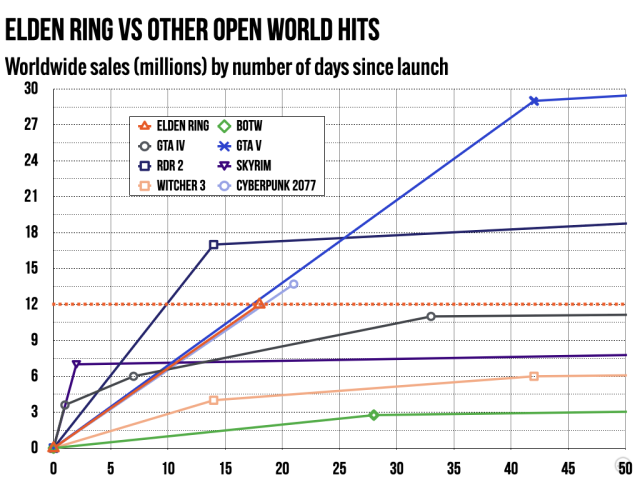
In fact, Elden Ring‘s initial sales pace puts it in the running with some of the best-selling open-world games of the last decade or so. The game is already selling faster out of the gate than Grand Theft Auto IV, Skyrim, The Witcher 3, or The Legend of Zelda: Breath of the Wild did at similar points in their sales cycles (though the last of these was limited by being sold only on the brand-new Switch and the dying Wii U at launch).
The closest recent open-world analogue to Elden Ring‘s sales is Cyberpunk 2077, which managed a whopping 13.7 million sales in its first 21 days despite launch issues that forced delistings and a widespread return program. Elden Ring is also matching pace with mega-hit Grand Theft Auto V, which sold about 29 million copies in six weeks after is 2014 launch. That game has since gone on to sell a mind-boggling 160 million copies across multiple hardware generations, although much of that long-tail success was driven by the continuing draw of GTA Online.
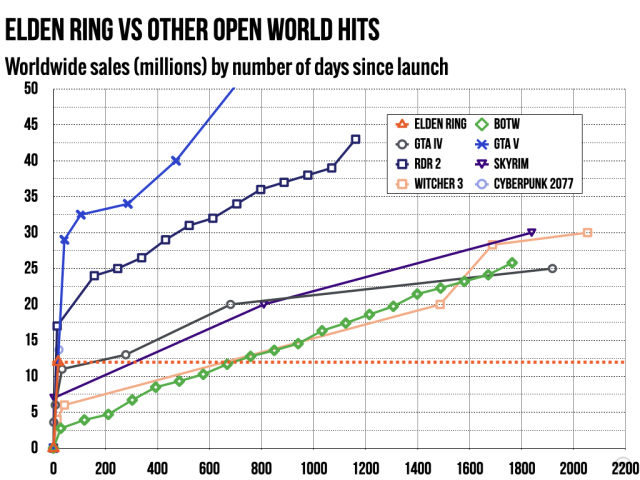
The path of Red Dead Redemption 2 might be more instructive for charting Elden Ring‘s future. That Western epic shot out of the gate with 17 million sales in two weeks, besting even Elden Ring‘s pace. Since then, however, sales for RDR2 have slowed to a steady and respectable rate of about 9 million sales per year, leading to 43 million total sales by the end of 2021.
If Elden Ring‘s initial sales are any indication, the game could easily meet or surpass that mark over the next few years. Even if it doesn’t, though, the new franchise is already a massive part of the gaming landscape, and FromSoftware has established itself as one of the most successful developers of the generation.

